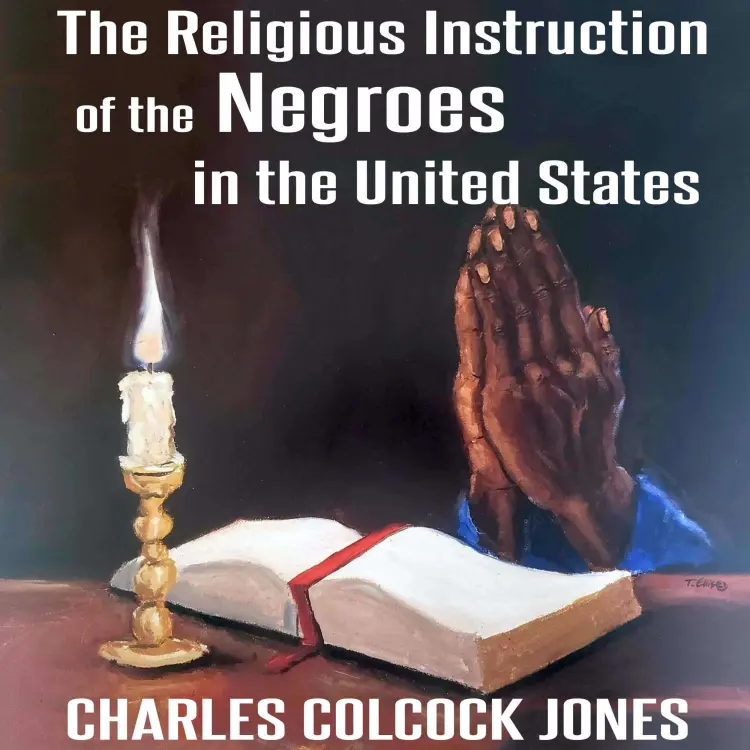
The Religious Instruction Of The Negroes In The United States
Charles Colcock Jones
Unabridged
7 hours 38 minutes
Note: Costs may be incurred for playing the audio books or audio plays on the respective platforms, e.g. Spotify. Lismio has no influence on which audiobooks and audio plays are available on the service.
Some articles contain affiliate links (marked with an asterisk *). If you click on these links and purchase products, we will receive a small commission at no extra cost to you. Your support helps to keep this site running and to continue creating useful content. Thank you for your support!
From the publisher
This work is an extended exhortation urging white ministers and slaveowners to attend to the spiritual needs of slaves and free blacks.
The book is broken into four parts. The first part is an historical sketch of slavery in the Colonies and the United States, with a focus on missionary and religious efforts directed towards the African slaves. This account goes from 1620 to 1842. Jones closes this first part with a summary of each denomination and each state.
The second part treats the "Moral and Religious Condition" of slaves and free blacks, blaming their circumstances for their lack of virtue. Jones especially calls attention to their poverty and lack of education. He describes their ignorance of Christianity, their general lack of character, and their prevailing vices, noting that in the end, they are totally dependent on white men for the ability to overcome these limitations. In light of this description, Jones goes on in the third part to describe the obligations of the Christian church to rectify these problems. He asserts that the religious education of the African part of the population is a duty no Christian can ignore. In addition, he lists several benefits of religious instruction.
The final part of the book proposes some strategies for implementing programs of religious instruction for slaves, making recommendations for Sabbath services as well as weekday plantation meetings. Jones says that the Christian gospel must be presented in a way that is intelligible to uneducated slaves, and must be inculcated early in childhood when possible. The guiding principle he describes for dealing with the condition of the slave is to be only concerned with the spiritual, not the secular, political, or civil. Jones concludes with pointed exhortations to masters, ministers, and the church at large, calling them all to devote more attention to the religious instruction of the African part of the American population.
The book is broken into four parts. The first part is an historical sketch of slavery in the Colonies and the United States, with a focus on missionary and religious efforts directed towards the African slaves. This account goes from 1620 to 1842. Jones closes this first part with a summary of each denomination and each state.
The second part treats the "Moral and Religious Condition" of slaves and free blacks, blaming their circumstances for their lack of virtue. Jones especially calls attention to their poverty and lack of education. He describes their ignorance of Christianity, their general lack of character, and their prevailing vices, noting that in the end, they are totally dependent on white men for the ability to overcome these limitations. In light of this description, Jones goes on in the third part to describe the obligations of the Christian church to rectify these problems. He asserts that the religious education of the African part of the population is a duty no Christian can ignore. In addition, he lists several benefits of religious instruction.
The final part of the book proposes some strategies for implementing programs of religious instruction for slaves, making recommendations for Sabbath services as well as weekday plantation meetings. Jones says that the Christian gospel must be presented in a way that is intelligible to uneducated slaves, and must be inculcated early in childhood when possible. The guiding principle he describes for dealing with the condition of the slave is to be only concerned with the spiritual, not the secular, political, or civil. Jones concludes with pointed exhortations to masters, ministers, and the church at large, calling them all to devote more attention to the religious instruction of the African part of the American population.









